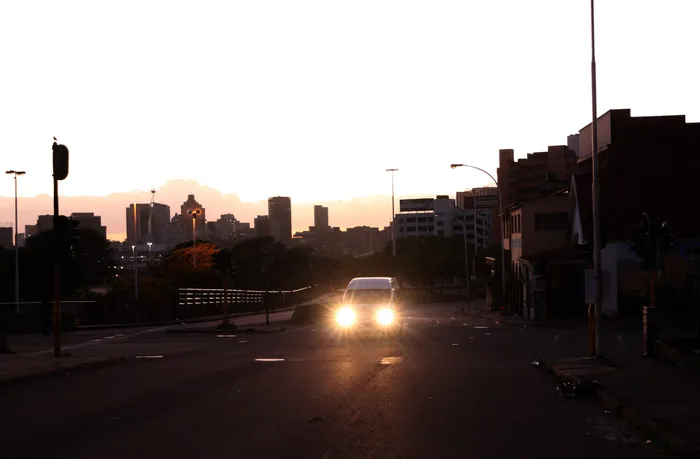South Africa: Economics of load shedding 101

Picture: Doctor Ngcobo/African News Agency (ANA) Archives - The damage being caused by Eskom’s load shedding has even had some direct negative effects on other sectors that many people could not have imagined, says the writer.
By Professor Bonke Dumisa
This year 2022 is by far the worst year of Eskom’s load shedding to date. We have already had at least over 2 000 hours of Eskom’s load shedding since the beginning of this year.
The period between September 6 and October 6 marked the first time that South Africa had ever had at least 30 consecutive days of load shedding, which even included two days of stage 6 load shedding.
We have had at least over 100 days of load shedding so far in 2022.
When Statistics SA released its report for the second quarter of 2022, which showed negative economic growth (contraction), and also when releasing other monthly negative economic growth rates for different sectors, including manufacturing, it was always mentioned that Eskom’s load shedding had played a major part in the negative economic growth rates.
The damage being caused by Eskom’s load shedding has even had some direct negative effects on other sectors that many people could not have imagined. Gauteng is currently having serious water provision challenges, but not because of any shortage of water in the dams supplying Gauteng. Rand Water says Eskom’s load shedding has affected the pumping stations and water pumps, which has resulted in “water rationing” or “water shedding” in some parts of Gauteng.
Is there any light at the end of the tunnel?
At one of the many media briefings that Eskom CEO André de Ruyter has held recently, one of the journalists asked him if load shedding will be over by 2025. De Ruyter could not give a definite ‘yes’. Such situations give rise to the perception that there is an acceptance in certain quarters that Eskom load shedding is here for life.
South Africans did not struggle for all those decades just to end up with load shedding being part of their lives forever.
What is the government doing about Eskom’s load shedding?
The arrest and charging of some high-profile people for the poorly constructed Kusile power station gives hope that the government is now serious in directly dealing with the real causes of load shedding. The appointment of a new Eskom board, comprising many seasoned professionals with proven track records, has shown that the government finally wants to seriously address the root causes of Eskom’s problems.
The government undertook to absorb at least between one-third and two-thirds of Eskom’s current debt of about R400 billion. The reasoning behind this government strategy was to allow Eskom to be freed from the huge debt burden that made it difficult for it to raise new loans to finance its essential infrastructural expenditure. The immediate direct result of this government announcement was that Moody’s international credit rating agency quickly upgraded its Eskom credit rating to positive, which was the first time Eskom had received such a positive credit rating in more than 15 years. Let us hope Eskom will now be able to sort out its essential infrastructural challenges instead of just wasting time on “Band-Aid approaches”.
It is encouraging that Eskom is now bolder in dealing with other culprits in the Eskom revenue generation challenges. For example, the Emfuleni Local Municipality has been owing Eskom over R5.3 billion for a number of years, and showed no interest in settling this debt. Eskom embarked on debt-recovery processes, which included attaching many assets that belong to the municipality. Fortunately for Eskom, this time the court did not rule against it for resorting to these measures.
Let us hope this will give Eskom more confidence in directly dealing with the many municipalities that collect electricity dues from the residents, but choose not to pay that money to Eskom, choosing instead to divert such electricity payments to other local government operational expenditures.
Let me now turn to something that I have been avoiding publicly pronouncing on.
I respect Gauteng Premier Panyaza Lesufi as a well-balanced, pragmatic politician who successfully managed the Gauteng education portfolio with effective, delicate care for many years. This was in line with his legacy as a former student representative council (SRC) student leader at the erstwhile University of Natal. I was thus very disappointed by his recent very reckless and irresponsible political claptrap when he said Eskom must write off the Soweto electricity debt. We don’t need such reckless politicking on Eskom issues, if we want to really resolve the Eskom challenges.
The same must be said about those who steal electricity and those who steal or sabotage Eskom infrastructure. The same must also be said of those Eskom employees and Eskom service providers who are part of the criminal syndicates. All those people must be arrested and prosecuted. Let us allow Eskom to succeed, in order to stop load shedding.
Dumisa is an independent economic analyst and advocate of the High Court of South Africa.